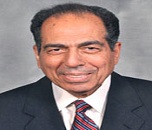About Conference
Welcome to the 18th World Congress on General Pediatrics & Adolescent Medicine, proudly hosted by Conference Series. With over 15 years of experience in organizing groundbreaking medical conferences, we are thrilled to invite you to this prestigious gathering of Pediatricians, Pediatric Surgeons, Neonatologists, Adolescent Medicine Specialists, Pediatric Nurses in the vibrant city of Toronto, Canada.
The General Pediatrics 2026 is a two-day event that promises to be the pinnacle of excellence in the field of pediatric and adolescent healthcare. This conference is designed to serve as a platform for the exchange of knowledge, ideas, and best practices in the world of pediatric and adolescent medicine.
Our Vision:
At the heart of this congress lies a vision of nurturing the well-being of children and adolescents, addressing their unique healthcare needs, and shaping the future of pediatric healthcare. Through our extensive experience in organizing medical events, we understand the profound impact that collaboration, knowledge-sharing, and innovation can have on advancing healthcare. It is our belief that by bringing together experts and thought leaders, we can drive innovation, foster collaboration, and make significant strides in improving the health and lives of the youngest members of our global community.
Why to Attend?
-
Cutting-edge Knowledge: The General Pediatrics 2026 will feature an exceptional lineup of speakers and sessions, presenting the latest research findings, clinical developments, and treatment modalities in general pediatrics and adolescent medicine.
-
Networking Opportunities: Connect with like-minded professionals, experts, and peers from around the world. Build relationships that can lead to collaboration and shared research endeavors.
-
Professional Growth: Enhance your knowledge, skills, and expertise through interactive workshops and symposia led by experts in the field. Gain valuable insights to improve your clinical practice and research.
-
Global Perspective: Gain a broader perspective on pediatric healthcare by learning about practices and challenges from different regions. Exchange ideas and approaches that can be applied in diverse healthcare settings.
-
Innovative Solutions: Explore the latest advancements in pediatric technology, healthcare systems, and patient care solutions showcased by industry leaders and exhibitors.
Who Should Attend?
-
Pediatricians
-
Pediatric Surgeons
-
Neonatologists
-
Adolescent Medicine Specialists
-
Pediatric Nurses
-
Pediatric Researchers
-
Medical Educators
-
Healthcare Administrators
-
Medical Students
-
Policy Makers
-
Industry Representatives
2025 Highlights:
-
300+ Participation (70% Industry: 30% Academia)
-
5+ Keynote Speakers
-
50+ Plenary Speakers
-
20+ Exhibitors
-
14 Innovative Educational Sessions
-
5+ Workshops
-
B2B Meetings
Join Us in Toronto:
Toronto, Canada’s largest city and the capital of Ontario, is a vibrant multicultural hub known for its diversity and dynamic economy. Situated on the northwestern shore of Lake Ontario, it blends modern skyscrapers like the CN Tower with green spaces such as High Park and the Toronto Islands. The city is a global center for finance, technology, arts, and culture, hosting events like the Toronto International Film Festival (TIFF). Its neighborhoods, from Chinatown to Little Italy, showcase rich cultural influences, while landmarks like the Royal Ontario Museum and St. Lawrence Market highlight its history. Toronto offers urban energy and natural beauty.
As we look forward to the General Pediatrics 2026, hosted by Conference Series, we invite you to be a part of this transformative experience. Join us in Toronto, Canada, on April 23-24, 2026, and contribute to the future of pediatric and adolescent medicine.
Stay tuned for more updates on the conference agenda, registration details, and travel information. Together, with Conference Series, we can make a lasting impact on the health and well-being of children and adolescents worldwide.
Session & Tracks
The 18th World Congress on General Pediatrics & Adolescent Medicine will feature a diverse range of sessions and tracks, each dedicated to exploring critical topics, advancements, and challenges in the field. Our program has been thoughtfully crafted to provide a comprehensive and enriching experience for all attendees. Here are the sessions and tracks you can look forward to:
Track 1. General Pediatrics: Advancements in Care
In this session, we delve into the ever-evolving landscape of general pediatrics, exploring the forefront of primary care for children. Deeper insights into pediatric infectious diseases, allergies, immunology, gastroenterology, and cardiology will be shared, offering attendees a comprehensive view of the latest treatments, diagnostic innovations, and best practices in providing holistic pediatric care.
-
Pediatric Primary Care
-
Pediatric Infectious Diseases
-
Pediatric Allergies and Immunology
-
Pediatric Gastroenterology
-
Pediatric Cardiology
Track 2. Adolescent Medicine: Addressing Unique Needs
Adolescents require specialized healthcare tailored to their distinct developmental stage. This track scrutinizes the multifaceted aspects of adolescent health, encompassing mental health, nutrition, substance abuse, reproductive health, and LGBTQ+ health. Experts will share strategies for navigating the physical, emotional, and social dimensions of adolescent healthcare, ensuring sensitive and effective care.
-
Adolescent Mental Health
-
Adolescent Nutrition
-
Substance Abuse and Addiction
-
Adolescent Reproductive Health
-
LGBTQ+ Health
Track 3. Pediatric Surgery and Neonatology
Within this track, we illuminate the intricate world of pediatric surgery and neonatology. Attendees will gain profound insights into neonatal intensive care, pioneering surgical techniques in pediatrics, neonatal nutrition advancements, and the evolving field of pediatric anesthesia. Expect to emerge with a deeper understanding of surgical interventions and neonatal care.
-
Neonatal Intensive Care
-
Pediatric Surgery Innovations
-
Neonatal Nutrition and Development
-
Pediatric Anesthesia
Track 4. Pediatric Oncology and Hematology
Pediatric oncology and hematology are pillars of pediatric medicine, demanding rigorous attention. This session concentrates on breakthroughs in cancer treatment, the complexities of managing leukemia and lymphoma, as well as the imperative topic of supportive care for pediatric cancer patients. A focus on survivorship and enhancing the quality of life for pediatric cancer survivors will be central.
-
Advances in Pediatric Cancer Treatment
-
Pediatric Leukemia and Lymphoma
-
Supportive Care in Pediatric Oncology
-
Survivorship and Quality of Life
Track 5. Child Development and Psychology
Child development and psychology are fundamental components of holistic pediatric care. This track encompasses cognitive and emotional development, pediatric psychology, autism spectrum disorders, and early intervention programs. Attendees will gain comprehensive insights into fostering healthy psychological development in children, facilitating their growth and well-being.
-
Cognitive and Emotional Development
-
Pediatric Psychology
-
Autism Spectrum Disorders
-
Early Intervention Programs
Track 6. Pediatric Emergency Medicine
Pediatric emergencies necessitate specialized knowledge and skills. This session provides in-depth coverage of pediatric trauma care, preparedness for pediatric emergencies, life-saving resuscitation techniques, and the role of telemedicine in managing critical pediatric cases. Attendees will be equipped with the tools and knowledge needed to handle emergencies with confidence.
-
Pediatric Trauma Care
-
Emergency Preparedness for Pediatrics
-
Pediatric Resuscitation
-
Telemedicine in Pediatric Emergencies
Track 7. Pediatric Nutrition and Growth
Nutrition forms the cornerstone of pediatric health. This track examines pressing issues such as pediatric obesity, nutritional deficiencies, the importance of breastfeeding, and the intricacies of pediatric endocrinology. Experts will elucidate strategies for ensuring proper nutrition and fostering healthy growth in children from all walks of life.
-
Pediatric Obesity
-
Nutritional Deficiencies in Children
-
Breastfeeding and Infant Nutrition
-
Pediatric Endocrinology
Track 8. Innovations in Pediatric Healthcare
Innovation is reshaping the landscape of pediatric healthcare. This session immerses attendees in the transformative potential of technologies like telemedicine and artificial intelligence. Discover the power of wearable technology, healthcare quality improvement, and the latest innovations propelling the future of pediatric medicine towards greater efficacy and patient-centric care.
-
Pediatric Telemedicine
-
Artificial Intelligence in Pediatrics
-
Wearable Technology for Pediatric Health
-
Pediatric Healthcare Quality Improvement
Track 9. Global Perspectives in Pediatrics
Pediatric healthcare is profoundly influenced by regional disparities and global dynamics. This track scrutinizes the critical issues of healthcare inequities, cross-cultural pediatric practices, global challenges in child health, and the vital realm of pediatric health policy. Attendees will gain a comprehensive global perspective, appreciating the importance of equitable healthcare worldwide.
-
Pediatric Healthcare Disparities
-
Cross-Cultural Pediatric Practices
-
Challenges in Global Child Health
-
Pediatric Health Policy
Track 10. Medical Education and Research in Pediatrics
Education and research form the backbone of progress in pediatric medicine. This session spotlights innovations in pediatric medical education, research methodologies shaping the future of healthcare, illuminating case studies, and the pivotal role of clinical trials. Attendees will embark on a journey to discover effective approaches to teaching and conducting transformative research in pediatrics.
-
Innovations in Pediatric Medical Education
-
Pediatric Research Methodologies
-
Pediatric Case Studies
-
Pediatric Clinical Trials
Track 11. Future of Pediatric Medicine
The future of pediatric medicine is a dynamic and ever-evolving arena. This track ventures into emerging trends, groundbreaking technologies, evolving healthcare delivery models, ethical dilemmas at the forefront, and the imperative shift towards patient-centered care in pediatrics. Attendees will gain fresh perspectives on the horizon of pediatric medicine.
-
Emerging Trends and Technologies
-
Pediatric Healthcare Delivery Models
-
Ethical Issues in Pediatric Medicine
-
Patient-Centered Care in Pediatrics
Track 12. Industry Symposiums and Exhibitions
Immerse yourself in the latest developments within pediatric healthcare through interactive symposiums and exhibitions hosted by industry leaders and exhibitors. Explore cutting-edge products, state-of-the-art technologies, and pioneering pharmaceuticals that are revolutionizing pediatric medicine.
-
Explore the latest pediatric healthcare technologies, pharmaceuticals, and innovations through interactive symposiums and exhibitions hosted by industry leaders and exhibitors.
Track 13. Networking and Special Events
Forge invaluable connections at networking sessions, engage with poster presentations, and partake in special events meticulously designed to catalyze collaboration and facilitate the exchange of transformative ideas among attendees. Connect with fellow professionals, researchers, and experts, creating bonds that transcend the conference and lead to impactful partnerships in the field.
-
Engage in networking sessions, poster presentations, and special events that foster collaboration and idea exchange among attendees.
Track 14. Adolescent Physical Development
This track focuses on the normal physical changes during puberty, including the development of secondary sexual characteristics, growth spurts, and hormonal changes. It covers the typical timelines for puberty onset in both boys and girls, along with common variations such as early or delayed puberty. The track also discusses the role of the healthcare provider in assessing normal development, recognizing atypical patterns, and providing guidance to adolescents and their families about the physical and emotional changes they may experience during this phase of life.
-
Clinical Assessment, Patient and Family Education, Preventive Care
Track 15. Adolescent Sexual Health
This track focuses on educating adolescents about sexual and reproductive health, emphasizing topics such as contraception, prevention of sexually transmitted infections (STIs), and safe sexual practices. It covers discussions on consent, healthy relationships, sexual orientation, and gender identity. The track also highlights the importance of sexual health counseling, confidentiality in adolescent care, and strategies for healthcare providers to engage teens in open, nonjudgmental conversations about sexual health. The goal is to empower adolescents to make informed and responsible decisions regarding their sexual well-being.
-
Sexual Health Education, Consent and Communication, Prevention of Sexual Violence, Promoting Gender Equality in Sexual Relationships
Track 16. Pediatric Neurology
Researchers are engaged in a variety of laboratory and clinical research programs to extend their understanding of the developing nervous system and pathologic processes that underlie neurological disorders in children. The most common neurological disease is pediatric epilepsy. Approximately 70% of children who suffer epilepsy during their childhood eventually outgrow it. Magnetic resonance spectroscopy (MRS) is a diagnostic tool used for inherited metabolic disorders. To date, MRS has been limited to the assessment for cerebral lactic acidosis in mitochondrial disorders in children. Neuromuscular and genetic metabolic diseases are the most common genetic related disorders in children. The new frontier to improve outcomes in crticially ill pediatric patients with neurological illness is Pediatric Neurocritical Care.
-
Adherence to Treatment, Cognitive Behavioural Therapy (CBT) for Headaches, Seizure Management Education, Self-Management in Chronic Neurological Conditions
Track 17. Pediatric Orthopedic Surgeon
A pediatric orthopedic surgeon is a specialized medical practitioner who focuses on diagnosing, treating, and surgically managing musculoskeletal conditions and injuries in children, adolescents, and young adults. These skilled surgeons address a wide range of issues specific to the pediatric population, including congenital deformities, growth plate injuries, developmental disorders, traumatic injuries, limb length discrepancies, neuromuscular conditions, and spinal deformities. Pediatric orthopedic surgeons provide both non-surgical and surgical interventions, working collaboratively with a team of healthcare professionals to ensure the best possible outcomes for their young patients. Their primary goal is to promote mobility, function, and overall well-being while considering the unique growth and developmental factors of children.
-
Promoting Pre-Surgical Preparation, Improving Compliance with Orthotic Use, Pain Management Education, Promoting Early Detection of Orthopedic Conditions
Track 18. Pediatric Immunology
Pediatric immunology is a branch of pediatrics which deals with immunological or allergic disorders of children. Pediatric immunology plays major role in understanding the cellular and molecular mechanisms underlying the immune system and it has seriously involved in the development of new diagnostic tests and treatment. Some of the major pediatric immunology diseases are community acquired infections, vaccination complications, pediatric HIV and AIDS and congenital or acquired immune deficiencies. As of 2013, of the estimated 35.3 million people worldwide living with HIV, approximately 3.2 million are children under 15 years of age. An estimated 260,000 children were newly infected with HIV in 2012; further, nearly 700 children are newly infected with HIV every day. Reflecting this imperative, it is equally important to learn about the diagnosing and caring of pediatric HIV patients.
-
Vaccine Education and Acceptance, Managing Allergic Reactions, Compliance with Antibiotic Prophylaxis, Dietary Management for Food Allergies
Track 19. Pediatric Allergy
Pediatric Allergy is an important subject to be learnt in order to promote understanding and advance the treatment of respiratory, allergic, and immunologic diseases in children. It emphasizes the epidemiologic research on the most common chronic illnesses of children—asthma and allergies—as well as many less common and rare diseases. Swollen or enlarged adenoids and Tonsils are common in children. Environmental and food allergies in children occur when the children’s immune system reacts to normal harmless substances present in the environment. Pneumonia is often caused by viruses, such as the influenza virus (flu) and adenovirus. Other viruses, such as respiratory syncytial virus (RSV) and human metapneumovirus, are common causes of pneumonia in young kids and babies. Some of the Allergic reactions in children include, red eyes, atopic dermatitis (eczema), itchiness, runny nose, urticaria (hives), an asthma attack and sinusitis.
-
Allergy Action Plans, Medication Compliance, Desensitization Therapy Adherence, Food Allergy Safety and Behavior Change, Educating on Anaphylaxis Recognition and Response
Track 20. Pediatric Gastroenterology
Gastrointestinal disorders in children range from minor to life threatening, and short- to long-term or chronic. Neonatal Jaundice is one of the most common conditions needing medical attention in newborn babies. Gastrointestinal food allergies are not rare in infants and children. Gastrointestinal (GI) endoscopic procedure a pediatric endoscopy has become an essential modality for evaluation and treatment of GI diseases. Complex gastrointestinal surgery is one of the common methods to treat GI disorder in children. The principle diseases concerned with pediatric gastroenterology are acute diarrhoea, gastritis, persistent vomiting and problems with the development of the gastric tract.
-
Medication Compliance in GI Disorders, Improving Bowel Management in Functional GI Disorders, Promoting Probiotic and Prebiotic Use, Managing Gastroesophageal Reflux Disease (GERD)
Track 21. Pediatric Cardiology
It is a dedicated focus area within medical conferences, academic programs, or professional gatherings that explores the latest advancements, research, and clinical practices in the field of pediatric heart health. This track is designed to address the unique challenges of diagnosing, managing, and treating cardiovascular conditions in fetuses, infants, children, and adolescents.
Track 22. Pediatric Neurology
Pediatric neurology focuses on diagnosing and treating neurological disorders in children, from newborns to adolescents. It covers conditions like epilepsy, cerebral palsy, neuromuscular diseases, developmental delays, and genetic or metabolic disorders affecting the brain. Pediatric neurologists use clinical exams, imaging (MRI, CT), EEGs, and genetic testing to assess conditions. Treatment includes medications, therapy, and sometimes surgery. Since children's nervous systems are still developing, early intervention is crucial for better outcomes. Pediatric neurologists often work closely with other specialists, such as neurosurgeons and physical therapists, to provide comprehensive care tailored to each child’s unique needs.
Track 23. Pediatric Dentistry
Pediatric dentistry focuses on the oral health of children from infancy through adolescence. It involves preventive and therapeutic care, including dental cleanings, fluoride treatments, sealants, and cavity management. Pediatric dentists are trained to handle children's unique dental needs, including early orthodontic assessments and management of habits like thumb-sucking. They also address dental anxiety by creating a child-friendly environment. Early visits help establish good oral hygiene habits and prevent future dental issues. By promoting preventive care and education, pediatric dentistry ensures healthy development of teeth and gums, setting the foundation for lifelong oral health.
Track 24. Pediatric Nursing
Pediatric nursing specializes in caring for infants, children, and adolescents, addressing their physical, emotional, and developmental needs. Pediatric nurses work in hospitals, clinics, and community settings, providing treatments, administering medications, and educating families on child health. They monitor growth and development, manage acute and chronic illnesses, and offer emotional support to children and their families. Communication and compassion are essential, as they help reduce children's anxiety during medical procedures. Pediatric nurses collaborate with healthcare teams to ensure comprehensive care, promoting wellness and early intervention. Their role is vital in fostering a child's health and well-being from infancy to adolescence
These meticulously designed sessions and tracks promise a profound and enriching experience for all attendees. Whether you are a seasoned pediatrician, a dedicated researcher, an educator, or an industry representative, each session offers an abundance of knowledge and inspiration. Join us in Toronto, Canada, on April 23-24, 2026, to immerse yourself in these critical discussions and the latest advancements in pediatric and adolescent medicine.
Market Analysis
A country-specific market analysis for General Pediatrics and Adolescent Medicine shows varying trends and growth drivers depending on the economic, demographic, and healthcare landscapes of each region.
Pediatric & Adolescent Healthcare Market By Country

United States :
The U.S. is the largest market globally for pediatric and adolescent healthcare. Factors driving this growth include a robust healthcare infrastructure, high healthcare expenditure, and a strong focus on research and development. Government programs like Medicaid and CHIP provide significant support for pediatric care. The prevalence of chronic conditions, such as asthma, obesity, and mental health disorders, among children and adolescents drives demand for specialized pediatric services.
Canada :
Canada follows similar trends as the U.S., with universal healthcare ensuring widespread access to pediatric care. Government investments in child health and a focus on preventive care further support the market. Canada also sees significant growth in adolescent mental health services due to increasing awareness of mental health issues among youth.
Germany :
Germany leads the European pediatric healthcare market due to its advanced medical infrastructure, strong insurance coverage, and emphasis on research. The country focuses heavily on preventive care and vaccinations, alongside specialized services for chronic conditions and rare diseases in children. The German government invests significantly in pediatric research and development.
United Kingdom :
The UK’s pediatric healthcare market is growing rapidly, driven by NHS initiatives that emphasize child health, early diagnosis, and mental health services. Increased government spending and public health campaigns focused on obesity and mental health in adolescents are key growth drivers. The market also benefits from high levels of research into pediatric diseases and treatments.
China :
China is one of the fastest-growing markets for pediatric healthcare. The country's massive population and the increasing middle-class demand for better healthcare services fuel this growth. The government has been investing in expanding healthcare infrastructure, particularly in pediatric and adolescent services, to address rising rates of chronic diseases like diabetes and respiratory conditions among children.
India :
India's pediatric healthcare market is expanding rapidly, driven by a large pediatric population and improving healthcare access in urban and rural areas. Growth is fueled by the increasing incidence of infectious diseases and malnutrition, alongside rising government initiatives aimed at improving child health and expanding vaccination coverage. Private healthcare providers are also playing a growing role in the market.
Brazil :
Brazil's pediatric healthcare market is moderately growing, supported by a combination of public and private healthcare services. However, disparities in access to quality care between urban and rural areas continue to challenge the market. Government programs targeting child health, such as immunization drives, are helping to expand pediatric services.
South Africa :
In South Africa, the pediatric healthcare market is focused on addressing high rates of infectious diseases such as HIV and tuberculosis among children, along with growing concerns about childhood malnutrition. Government initiatives and international aid play crucial roles in supporting pediatric healthcare services.
Each country faces unique challenges and growth opportunities in pediatric and adolescent healthcare. In developed markets, growth is driven by advanced medical infrastructure, research, and chronic disease management, while in developing regions, expansion is often linked to improvements in healthcare access, government initiatives, and addressing infectious diseases.














